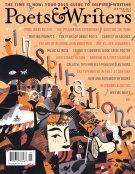An Agent’s Take
Ted Weinstein founded his San Francisco–based literary agency in 2001. Before becoming an agent, he held various licensing, marketing, and business development positions at major publishers. He has also been the music critic for NPR’s All Things Considered and has written for a number of Bay Area publications.
George Gibson was smart and a gentleman to let Keith publish Leonardo and Steve. He also let us include the first chapter of the hardcover in the e-book. We hadn’t planned on this project while Keith was writing The Man of Numbers, but once we knew the material was deleted from the hardcover, it just made perfect sense. We also thought the publicist would be able to promote both books when pitching the media.
I knew enough about the material and I had done a charity project using CreateSpace already, so I felt pretty comfortable that Keith and I could do this. Maybe I’m more tech savvy than some other agents or authors but it really wasn’t difficult. Since I was essentially serving as publisher, not agent, Keith and I came to a financial arrangement. We didn’t do anything fancy; we hired a cover designer and a copyeditor. It took an hour or so on my laptop to do the formatting. The e-book was available on Amazon and Smashwords, and later on all the e-formats available at that time.
There was no grand launch; Keith would mention it whenever possible. It was early on in [the era of] e-books, so it was really an ancillary opportunity. It continues to sell…and we’ve made a little money. But I was surprised that the e-book didn’t generate more publicity. It would have been a great opportunity for outlets to talk to Keith, with all the attention being paid to Steve Jobs at the time.
It wasn’t a groundbreaking project. I see it as an enhancement on the old serial placements. Years ago, print publications would excerpt an entire chapter of a new book, but that rarely happens these days. When an author has several books, an e-book provides an added opportunity for all of the titles to get more attention. All good literary agents are (or should be) looking at backlist titles and publishing them as e-books. There is some work involved in this “direct” publishing, but everyone—author, agent, and publisher—should be doing these projects. Traditional publishers still cannot catalogue, schedule, and sell-in e-books in a timely manner.
Direct publishing Introduction to Mathematical Thinking was an easy decision. Since Keith was already teaching the Coursera class, it didn’t make sense to wait the several years it requires for a textbook publisher to make the book available. Students around the world bought the book in English and I ended up selling foreign rights for the book as well.
A Publicist’s Perspective
Amy Ferro, a San Francisco–based publicist and social media expert, spent eight years at John Wiley & Sons as a publicist.
As a publicist, I know how difficult it is for major publishers to get review and media attention for their books, so I’m not surprised that Keith’s e-book didn’t get much coverage. Still, I think it can be interesting for a publicist to promote two books by one author. The author can talk about the e-book and mention the hardcover and vice versa. We can always work both titles in our pitch letters and in our follow-up. But certainly the publisher’s big push would be on the hardcover that it published.
People who self-publish have to be even more creative to get their books mentioned in the media since they’re competing with other self-published authors as well as all the traditional books. Self-published authors are often on a tight budget, but they should have free copies available for the media. Many publications won’t write about a book simply because they receive a press release; editors and writers want to see a galley or the finished book.
Social media is essential these days, particularly ahead of your pub date. Make sure you use SEO (search engine optimization) in your press release or other promotion so your material is picked up by other websites. If you’re not already using Twitter, you should start tweeting well before your book is available so you can build up a following. Take the time to follow people who might be interested in the topic of the book. Use hashtags so you and your book are more visible. For example, for Keith’s book, I would have used #stevejobs or #Apple.
Ahead of publication, tell your personal and business contacts how excited you are that your book will soon be available. Suggest they preorder it or buy it on the publication date. That way, you can create some buzz and boost your Amazon ranking. Then, when the book is available, ask people to post online book reviews. Make sure you have the right links in all your pitches; link directly to the Amazon book page or to your website.
Obviously, if you have your own blog, you’ll be promoting the book on it. But you should also try to get posts on other people’s blogs. Again, you can use social media to draw attention to these blog posts. Research influencers and invite them to read your book.
Think creatively. Don’t just contact book reviewers or columnists. Approach writers who cover the subject of your book and come up with a clever pitch. Do your homework so you’re not randomly approaching journalists. Offer a targeted pitch to the media covering the topics in your book. I’m sure Keith approached reporters who covered Apple the company or Apple products.
If you’re not comfortable or familiar with “pitching,” consider hiring a PR professional. Experienced book publicists have developed relationships with their media contacts, and media people may be more receptive to a pitch from those they’ve worked with than from unknown authors. You don’t want to harass or annoy a journalist who can bad-mouth you and your book on social media.
Debra W. Englander is a New York–based freelance editor and writer. She managed a business-book program at John Wiley & Sons for nearly seventeen years and previously worked at Money magazine and Book-of-the-Month Club. She has written about business and books for numerous publications, including USA Today, Good Housekeeping, and Publishers Weekly.










